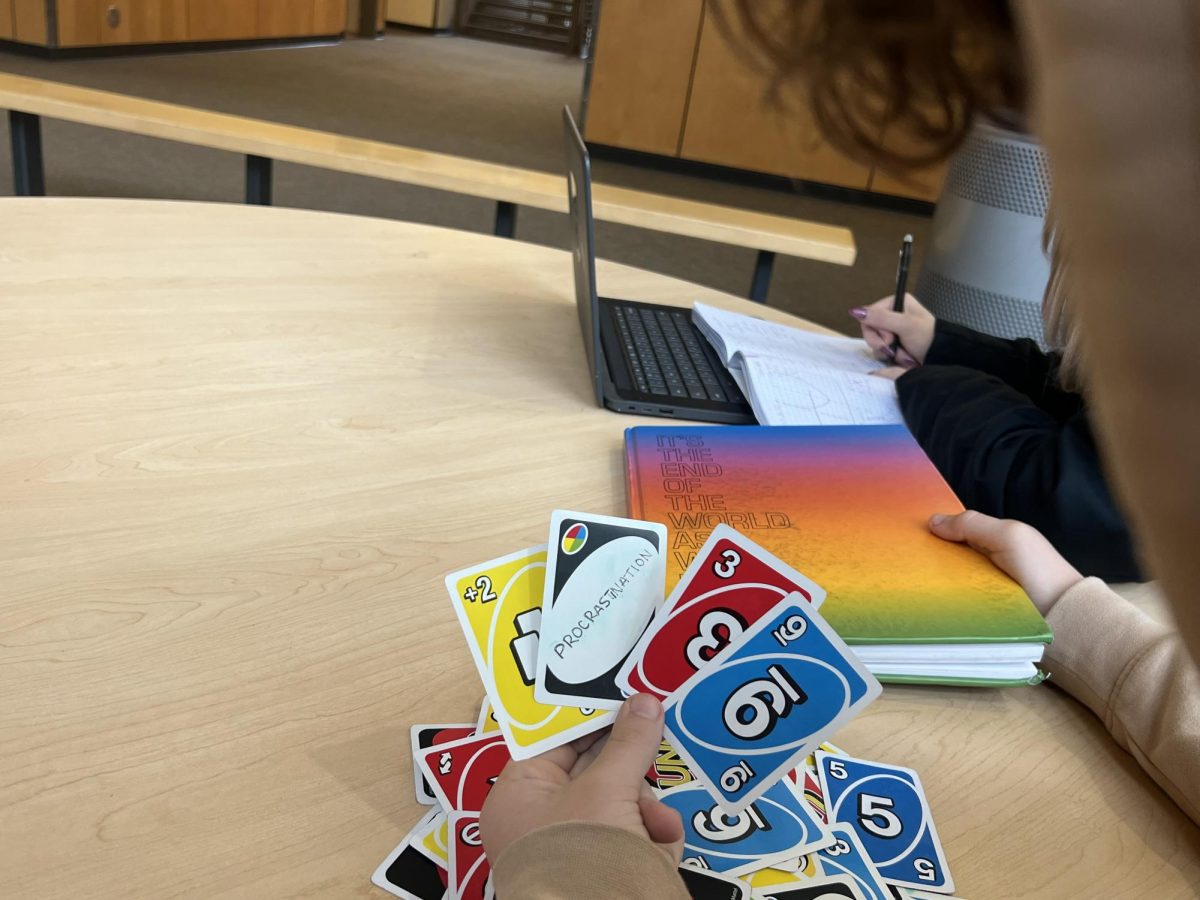Procrastination. It’s something that, according to Gitnux market data report 2024, 50% of high school students consistently and problematically do, but why is this? Why does half of the student body procrastinate homework, studying for tests, and class assignments?
Procrastination can be provoked in high school students for numerous reasons. Wilsonville junior, Izzy Wellhouser, believes it has to do with motivation and time.
She says, “I used to procrastinate because I knew that once I started the work, I wouldn’t want to leave it unfinished so I would have to dedicate a lot of time to finish it in one sitting. I also wanted to do my best work so I would wait until I was feeling motivated to begin on assignments, even if it was due soon.”
Many students have had the same experience as Wellhouser, but there have also been other reasons for procrastination. Often, some students procrastinate for their own benefit, as an anonymous sophomore explains.
“I procrastinate on purpose because by procrastinating, I leave things to the last minute and I feel like I do my best work last minute rather than at the moment. Also, it leaves me with a lot of free time.”
She brings up one of the most common claims for why many students procrastinate: free time.
Students often don’t do assignments when time runs short in a day. Many people would rather spend their evenings socializing or participating in extracurriculars, rather than putting their academics first. “If I didn’t procrastinate I would literally have no free time,” says senior Evelyn Guzman.
“It seems better to just have free time the majority of the school year and then trade it for a week of no time to do the things I missed. Most teachers accept late work anyways, so I don’t see the point not to,” Guzman adds.
However, even though procrastination doesn’t seem like all too big a deal for students, that’s not entirely the case. According to the Mass General Hospital Mclean website, “The issue can be linked to depression, anxiety, low self-esteem, ADHD, and poor study habits.”
From the perspective of health workers, procrastination isn’t recommended as a productive, or positive habit. Instead, experts recommend creating methods to prevent or at least slow down procrastination.
Wellhouser states, “What I do to stop my procrastination is put my phone on do not disturb, make lists of tasks at hand, then use the Pomodoro method; Meaning (that) I take 25 minutes to work, then a five minute break.”
By creating methods such as these, students can cut down their habits of procrastination heavily benefiting them overall.
While in the moment procrastination may not seem like the biggest deal, its effects on a person, especially students, can definitely leave impacts that carry into college and careers post high-school.











